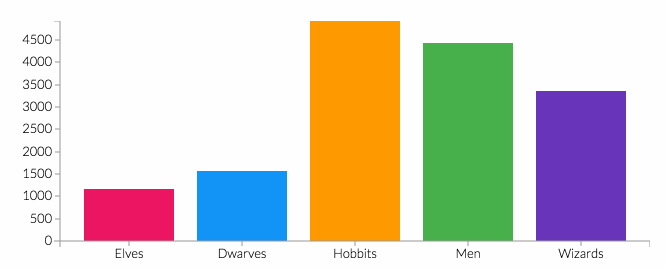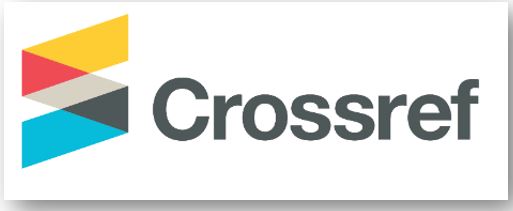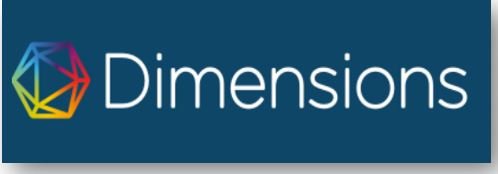Peningkatan Kualitas Pendidikan Islam Melalui Metode Pembelajaran Perspektif Al-Qur'an dan Hadits
DOI:
https://doi.org/10.61231/jie.v2i1.261Keywords:
Quality, Learning Methods, Islamic EducationAbstract
The aim of this research is to describe the various learning methods contained in the Al-Qur'an and Hadith as a form of contribution to the world of education. Qualitative research methodology by reviewing various related literature as well as analyzing several scientific works that explain learning methods from the perspective of the Koran and Hadith. The research results show that the Al-Qur'an and Hadith as a guide to life for mankind provide varied learning methods. Several learning methods, namely the imitation method, the practical experience method (Trial and Error Method), and the thinking method. In conclusion, learning involves thinking activities (brain training) and behavioral activities (behavior) which must influence the growth of knowledge and experience. Islam highly upholds the aspect of morality in education because it holds that all knowledge essentially belongs to Allah and learning should be done not solely for the sake of knowledge itself, but also to get closer to Allah, worship Him, and fulfill obligations as caliph- His in the world
References
Ahmat Miftakul Huda, & Suyadi. (2020). Otak dan Akal dalam Kajian Al-Quran dan Neurosains. Jurnal Pendidikan Islam Indonesia, 5(1), 67–79. https://doi.org/10.35316/jpii.v5i1.242
Aman, M. (2020). Metode Pembelajaran Berbasis Al-Qur’an. Jurnal Kajian Islam Dan Pendidikan Tadarus Tarbawy, 2(2), 265–273. https://doi.org/10.31000/jkip.v2i2.3188
Asep Supriatna1, Herdian Kertayasa2, Alfyan Syach3, C. G. (2021). Strategi Pendekatan Pembelajaran Dalam Konsep Pendidikan dan Al-Qur’an. Edumaspul, 5(1), 424–436.
Asiyah, M. (2021). Penggunaan Metode Diskusi Untuk meningkatkan hasil belajar Fikih di MI kelas 6. Jurnal Studi Keagamaan Islam, 2(2).
Cecilia, V., & Saputra, R. (2023). Ruang Lingkup dan Metode Pendidikan Akhlak (Telaah Hadits-hadits Kitab Akhlaq Lil Banin Juz IV). Journal of Innovation in Teaching and Instructional Media, 3(2), 49–67. https://doi.org/10.52690/jitim.v3i2.707
Enalya, W., & Husni, Z. T. (2024). Hadits - Hadits Tentang Metode Pendidikan. 2(2), 42–55.
Fudhail, A. (2020). Menjawab Keraguan Maurice Bucaille tentang Kesesuaian Hadis dan Sains. Refleksi, 19(1). https://doi.org/10.15408/ref.v19i1.15416
Hariyadi, M., & Subki, M. (2022). Sisi Pendidikan dalam Metode Drama Kisah Qabil dan Habil. Edukasi Islami: Jurnal Pendidikan Islam, 11(02), 663. https://doi.org/10.30868/ei.v11i02.2652
Hasibuan, S. (2023). Strategi Pembelajaran Aktif Dalam Perspektif Al-Qur’an. Jurnal Pendidikan Islam, 1(1), 326–335.
Junaidi. (2021). Strategi Dakwah Dalam Hadis dan Aplikasinya. 2(2), 114–121.
Maisyaroh, M. (2019). Hakikat Pendidik dalam Perspektif Falsafah Pendidikan Islami. Jurnal Pendidikan Agama Islam Al-Thariqah, 4(2), 1–9. https://doi.org/10.25299/al-thariqah.2019.vol4(2).4079
Maryono, M. (2022). Tujuan Pendidikan Islam Perspektif Shaikh Al-Alb?niy. Jurnal Al-Fawa’id?: Jurnal Agama Dan Bahasa, 12(1), 92–104. https://doi.org/10.54214/alfawaid.vol12.iss1.209
Mirnawati, L. B. (2017). Pengaruh Model Pembelajaran Kooperatif Tipe Group Investigation Terhadap Kreativitas Mahasiswa Semester I PGSD UM Surabaya pada Mata Kuliah Pengantar Manajemen Pendidikan. Pedagogia?: Jurnal Pendidikan, 6(1), 84–97. https://doi.org/10.21070/pedagogia.v6i1.598
Multidisiplin, J. I., Simanjuntak, H. P., & Naibaho, D. (2023). Kepribadian Dan Keteladanan Guru Dalam Strategi. 1(1), 292–296.
Muslimin, E., Nurwadjah, Julaeha, S., & Suhartini, A. (2021). Konsep dan Metode Uswatun Hasanah Dalam Perkembangan Pengelolaan Pendidikan Islam Di Indonesia. Jurnal Manajemen Pendidikan Islam, 02(1), 71–87.
Nasaruddin, N., & Mubarak, F. (2022). Metode Pengajaran Dalam Perspektif Al-Quran (Tinjauan Q.S. An-Nahl Ayat 125). Tajdid: Jurnal Pemikiran Keislaman Dan Kemanusiaan, 6(2), 135–148. https://doi.org/10.52266/tadjid.v6i2.1190
Nurhaliza, S., & Juro, A.-Z. (2023). Kepribadian Guru. Tsaqofah, 3(5), 731–739. https://doi.org/10.58578/tsaqofah.v3i5.1368
Rahmania, E. A. (2022). Oleh: ELDA AULIA RAHMANIA NIM. 1817402227.
Rinnanik, R. (2018). Tinjauan Filosofis Pendidikan Islam. Tarbawiyah Jurnal Ilmiah Pendidikan, 1(01), 250–271.
Rubini, R. (2019). Metode Pembelajaran Berbasis Hadis. Humanika, 18(1), 31–49. https://doi.org/10.21831/hum.v18i1.23127
Sopian, S. (2022). Pembelajaran Qur’an Hadits Melalui Pendekatan Contextual Teaching and Learning. Madaniyah, 12(2), 139–158. https://doi.org/10.58410/madaniyah.v12i2.385
Sudrajat, T., Ahmad EQ, N., & Suhartini, A. (2021). Implementasi Kebijakan Tanggung Jawab Dan Profesionalisme Guru Sebagai Pendidik Bagi Kemajuan Pendidikan Islam. Jurnal Andi Djemma?: Jurnal Pendidikan, 4(2), 59. https://doi.org/10.35914/jad.v4i2.401
Suhandi, S. (2022). Hadits Tentang Metode Pendidikan dan Karakteristiknya. Jurnal Penelitian Tarbawi: Pendidikan Islam Dan Isu-Isu Sosial, 7(1), 80–91. https://doi.org/10.37216/tarbawi.v7i1.512
Tambunan, A. A. (2024). Nilai Pendidikan Anak dalam Buku Tarbiyatul Aulad Fil Islam Karya Dr . Abdulla h Nashih ‘ Ulwan. 5(1), 343–356. https://doi.org/10.37985/murhum.v5i1.543
Wakka, A. (2020). Petunjuk Al-Qur’an Tentang Belajar Dan Pembelajaran. Education and Learning Journal, 1(1), 82. https://doi.org/10.33096/eljour.v1i1.43
Wirabumi, R. (2020). Metode Pembelajaran Ceramah. Annual Conference on Islamic Education and Thought, I(I), 105–113. https://pkm.uika-bogor.ac.id/index.php/aciet/article/view/660/569
Yakin, A. (2020). Metode Diskusi Dalam Pembelajaran Menurut Perspektif Islam. Annual Conference on Islamic Education and …, I(I), 157–163. http://pkm.uika-bogor.ac.id/index.php/aciet/article/view/675%0Ahttp://pkm.uika-bogor.ac.id/index.php/aciet/article/download/675/585
Zakir, M. (2016). Metode Mengajar dalam Pendidikan Islam (Kajian Tafsir Tarbawi). Jurnal Studi Pemikiran, Riset Dan Pengembangan Pendidikan Islam, 5(2), 101–118. http://ojs.serambimekkah.ac.id/tarbawi/article/view/1267
Downloads
Published
Issue
Section
License
Copyright (c) 2024 Kattrin Setyoningsih, Vira Aisah Zahrah, Intan Nur Syafira, Ahmad Yusam Thobroni

This work is licensed under a Creative Commons Attribution 4.0 International License.
You are free to:
- Share — copy and redistribute the material in any medium or format for any purpose, even commercially.
- Adapt — remix, transform, and build upon the material for any purpose, even commercially.
- The licensor cannot revoke these freedoms as long as you follow the license terms.
Under the following terms:
- Attribution — You must give appropriate credit , provide a link to the license, and indicate if changes were made . You may do so in any reasonable manner, but not in any way that suggests the licensor endorses you or your use.
- No additional restrictions — You may not apply legal terms or technological measures that legally restrict others from doing anything the license permits.
Notices:
You do not have to comply with the license for elements of the material in the public domain or where your use is permitted by an applicable exception or limitation .
No warranties are given. The license may not give you all of the permissions necessary for your intended use. For example, other rights such as publicity, privacy, or moral rights may limit how you use the material.














